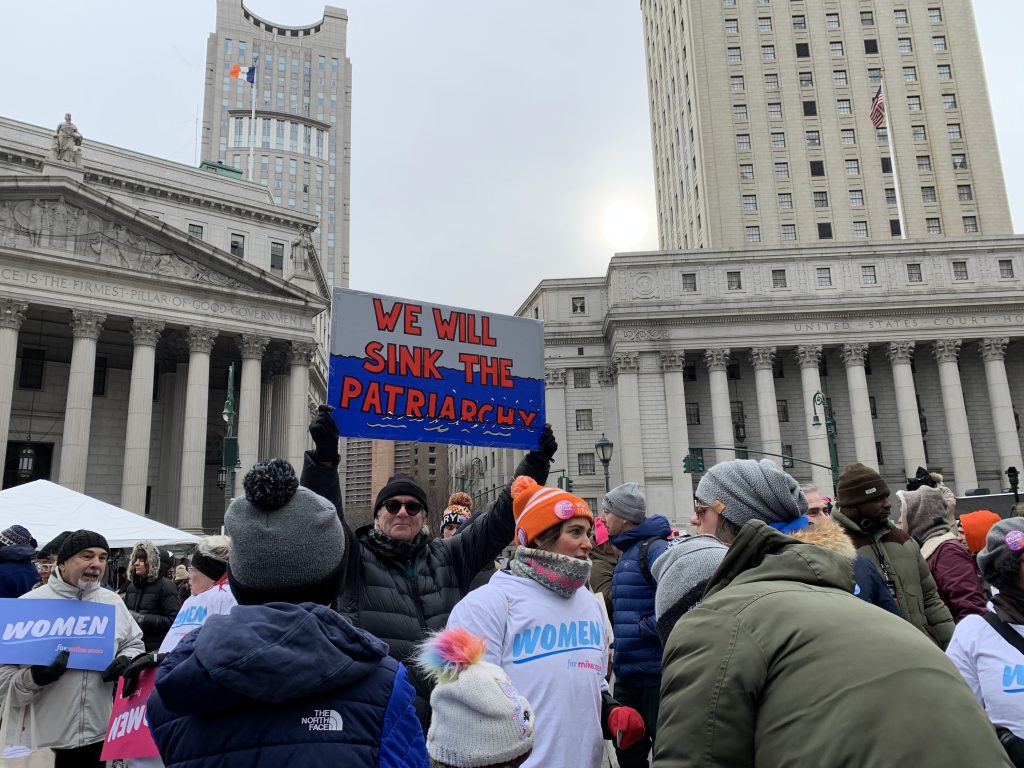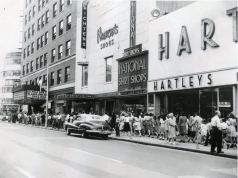After last year’s divisive split, the Women’s March Alliance and the Women’s March NYC reconciled for the fourth annual unity rally yesterday.
Calling themselves “sister marches,” the Women’s March NYC began in Foley Square, while the Women’s March Alliance gathered in Columbus Circle. The two rallies took place simultaneously then marched and met in Times Square.
Part of the global women’s marches that started after President Trump was elected, the New York City group split in two last year after disagreements over inclusivity and accusations of anti-Semitism.
Previous Women’s March co-chairs Tamika Mallory and Linda Sarsour, who stepped down in 2019, were accused of being anti-semitic. Jewish women of color also claimed that they were not represented, noting that there is a stark dichotomy between the experiences of white Jewish women and those of color.

United behind the theme of “Rise and Roar,” the decision to reunite came through faith and goodwill from new leadership, according to Julia Fusco-Luberoff, executive director of the Women’s March NYC.
She believes the reason they were able to unite was because they didn’t let problems of the past taint the future. “We came together because we realized that we were all new leadership all across the board and any of the problems of the past didn’t have to get inherited to us. That’s one of the things that we decided early on about to say ‘Let’s try this,’” she said.
Fusco-Luberoff, who has been an educator for 18 years, also wanted to use the rally as a platform to promote a new app called Vote In Or Out. Designed by Brooklyn resident Lisa Chin Mollica, the app is meant to facilitate a bridge between citizens and politicians by giving users access to information about candidates, their stances and even swipeable score cards. The end goal is to better educate voters, decrease the at times ineffective political discourse of social media and have users search peer-reviewed information.
“So that is an app that my team and I have been developing for two years. Let’s get together and let’s be educated on the issues. Let’s make sure that we’re getting rid of the fake news problem that’s been an issue for the last four years at least. This completely obliterates it,” said Fusco-Luberoff.
Fusco-Luberoff was motivated to launch the app by the amount of misinformation circulating regarding gun policy and legislation in the U.S., an issue that she’s been touched by in her job as a teacher.
“I can’t watch any more kids sitting in their classrooms being shot. So, we decided we’re going to do something about it,” she said. “We’re handing power to the people through this app and it takes the voter education experience and puts it all in one place with all of the social media features that you’re used to and the kids have jumped on it like crazy.”
The Women’s March not only fights for women’s rights but also intersectional issues such as immigration, ending violence, LGBTQ rights and more.
Maureen Vantrease, a 56-year-old demonstrator, was hopeful that more women will come out to vote in November. “That’s the only way we are going to get rid of all the nasty men. There’s a lot of them in Congress. So many,” she said. “Honestly, if we don’t do something now, if we don’t really get up and get out and vote, we’re going to have four more years of this and the country can’t take it.”
Donna Hylton, a formerly convicted murderer-turned activist, joined the line-up of speakers. After a nearly 27-year stint in prison, Hylton was released on parole in 2012 and now fights vigorously for women’s rights and criminal justice reform. She also spoke at the first Women’s March in Washington, D.C. in 2017.
“Women need to be heard. Women need to not be silenced or marginalized. Women’s bodies are not for your taking. Not for your raping. Not for your abuse. Today, three years later, we have made progress but we have a lot more progress to make,” said Hylton.
































